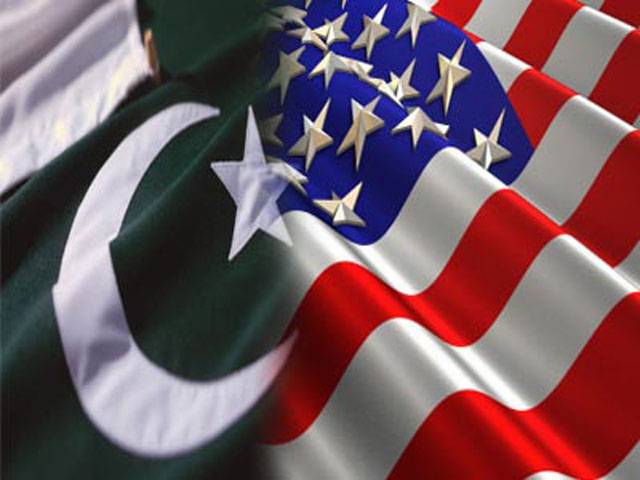ISLAMABAD - Neither Pakistan nor the United States wants complete withdrawal of the allied forces from Afghanistan due to the ‘complications’ that may recur in the post drawdown period, a top defence official said Tuesday.
“Not only us but they (US) are also fully cognisant of the fact that completely winding up from the Afghanistan would have dangerous implications,” the official, requesting anonymity, told a select group of journalists after attending National Assembly’s defence panel session.
“They don’t want to repeat the mistakes of the past,” the defence functionary referred to the US pullout from Afghanistan following the collapse of Soviet Union in the 1990s. “This is why they are going to sign the BSA (Bilateral Security Agreement) with Afghanistan.”
Commenting on the reports that US President Barack Obama has ordered the US Department of Defence to begin plans on a full withdrawal by the end of 2014 due to reluctance shown by Afghan President Hamid Karzai to sign BSA, the official said, “The situation would get really complicated in such a scenario and they (US) are aware of it, that is why they are trying their level best to have the agreement signed that would allow them to stay in Afghanistan beyond 2014.”
Earlier, the officials from the Inter-Services Intelligence (ISI), the army’s premier security agency, briefed the lawmakers on the issues concerning national security during an in-camera session of the NA Standing Committee on Defence at the Parliament House.
Contrary to the expectations, no serving general or anyone from the military’s top intelligence brass showed up to brief the NA panel. Instead, a brigadier-ranked officer from the ISI gave the related briefing while the meeting did not have any representation from the Military Intelligence (MI) and Intelligence Bureau (IB), the country’s main civilian intelligence arm. Moreover, the briefing’s agenda also surprised many. The participants were expecting the military establishment’s perspective on the peace talks with Tehreek-e-Taliban Pakistan (TTP) but that was not part of the ISI official’s briefing. An overview of the security situation across the country in general and Karachi and Balochistan in particular was presented while the need to formulate tougher anti-terror laws to tackle the issues like missing persons was highlighted.
Earlier on Monday, Defence Minister Khawaja Asif confirmed to The Nation that progress on peace talks with the TTP would be discussed in the NA defence panel’s meeting. “It is important to take the lawmakers into confidence on the crucial matters. A lot is happening on the security front in the northwest. The elected representatives have the right to know what is going on. The politicians, government, security establishment, general public and the civil society, all have to be on the same page to determine the future course of action for the restoration of peace in the terrorism affected region,” he told this correspondent.
But Khawaja Asif did not attend the committee’s session on Tuesday. Secretary Defence Lieutenant General (Retd) Asif Yasin Malik and noted lawmakers including Dr Shireen Mazari and Mehmood Khan Achakzai were among the meeting participants.
“We are satisfied with today’s briefing,” said Sheikh Rohail Asghar, the chairman NA defence committee, in an interaction with the reporters after the meeting. The defence committee, he said, would formulate its recommendations in the light of the related input of its members as well as the ISI’s briefing. Without elaborating on the specifications of the in-camera session, Asghar said the NA Standing Committee on Defence would recommend the implementation of effective laws to empower the security agencies to play effective role in their anti-terror drive.
“This briefing helped us understand the security establishment’s perspective on the prevalent security issues. I hope these kinds of interaction would help identify the challenges in order to build consensus for an effective mechanism to respond to the security challenges.”
A meeting participant, wishing to stay nameless, said the ISI briefing was largely based on the National Internal Security Policy (NISP) 2014-18. The ISI official, the source said, quoted the related data from the security policy regarding the terrorism incidents in Pakistan. Reportedly, the ISI brigadier, in his briefing, elaborated on the role of banned sectarian organisations like Lashkar-e-Jhangvi in promoting sectarian terrorism in Karachi, Quetta and other parts of the country.
The NISP’s relevant data on the terror cases reportedly shared during the Tuesday briefing suggested that a total number of 13,053 terrorism cases were registered in the 48 anti-terrorism courts (ATC) across Pakistan from 2008 to 2012. Of these cases, only 6,661 were decided while 5,680 were still pending. During the specified period, 14,115 terror accused were acquitted and 10,327 were granted bails whereas cases remained pending against 35,106 accused.
Tuesday, April 16, 2024
‘Pakistan, US against complete Afghan pullout’
| ISI officer briefs NA defence panel, wants effective anti-terror laws

Caption: ‘Pakistan, US against complete Afghan pullout’
8:54 PM | April 16, 2024
8:53 PM | April 16, 2024
Muslim K-popstar Daud Kim buys land to build mosque in South Korea
10:33 PM | April 16, 2024
Punjab Stadium unavailability derails National Challenge Cup 2023 Final Round
10:28 PM | April 16, 2024
Death anniversary of comedian Babu Baral being observed today
10:12 PM | April 16, 2024
Heavy rains lash UAE and surrounding nations as the death toll in Oman flooding rises to 18
10:11 PM | April 16, 2024
Israel's military chief says that Israel will respond to Iran's weekend missile attack
10:11 PM | April 16, 2024
Political Reconciliation
April 16, 2024
Pricing Pressures
April 16, 2024
Western Hypocrisy
April 16, 2024
Policing Reforms
April 15, 2024
Storm Safety
April 15, 2024
Democratic harmony
April 16, 2024
Digital dilemma
April 16, 2024
Classroom crisis
April 16, 2024
Bridging gaps
April 16, 2024
Suicide awareness
April 15, 2024
ePaper - Nawaiwaqt
Advertisement
Nawaiwaqt Group | Copyright © 2024





